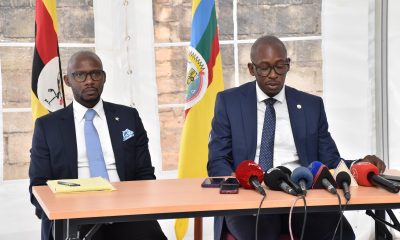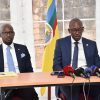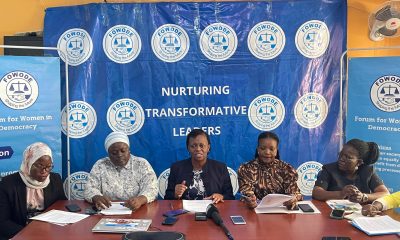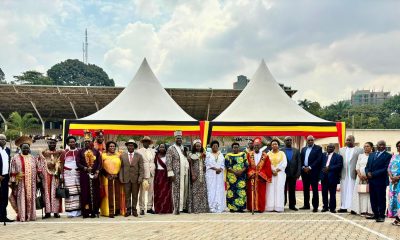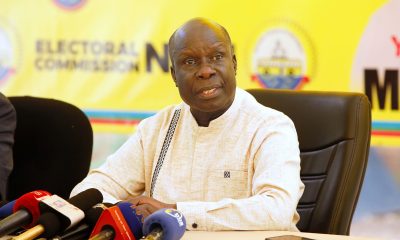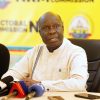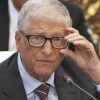Columnists
Debate how to reduce costs of Museveni’s stay
Over the past 31 years, President Museveni has told Ugandans what he meant and they chose to hear what they wanted!

President Museveni has kept his military gear even at civil events including his high-stakes meeting with Kabaka Mutebi in 2009
The age limit debate/war is in advanced stages. It is one of those debates that bore me a lot for two reasons: first, Uganda has more serious problems that beg more attention, time and resources to solve – the economy has had two decades of jobless growth; GDP is expanding amidst stagnant household incomes; inequality is rising; poverty has increased; and neo-liberalism has not worked as effectively as its proponents promised us.
Secondly, in December 2015, while campaigning in Namutumba District (during the 2016 Presidential elections) the man around whom the age limit debate revolves said, “…you hear people say ‘Museveni should go’. But go and leave oil money? They want me to go so they can come and spoil the oil money. These people want me to go back to the bush.”
Earlier, in January 2015, the President had told people of Rukiga County in Kabale district thus, “The Opposition are like wolves lurking around to tear Uganda apart. I will not allow them because I have support of the majority of Ugandans and my army. Why can’t they tell Ugandans alternatives on wealth creation instead of preaching the gospel that I must leave power? I will not give them chance.”
Much earlier, in 2001, while taking the oath at Kololo Grounds for his second (and then last constitutional) elective term in office, the President asked (while waving a ballot paper), “Kano akapapula obupapula kajja omuntu mu buyinza?” – literally asking, “Can a mere ballot paper like this remove someone from power?”
We can even trace it back to the very first speech that Museveni, then 40 years old, made as President of Uganda on January 26th 1986. He said, ”Nobody is to think that what is happening today, what has been happening in the last few days is a mere change of guards. This is not a mere change of guards. I think this is a fundamental change in the politics of our government.”
Questions every Ugandan should ask
When I first heard about the age limit debate, with all the above in my mind, and the considering the excitement the debate had generated among sections of Ugandans, I went back home and slept on top of my bed, my face looking at the ceiling.
I asked myself four questions and quickly answered them, “Has the oil come out of the ground? No. Does the opposition have the support of the majority of Ugandans (measured by representation in Parliament) or that of the army? No. Have the ‘Togikwatako’ group devised any other means apart from the “mere ballot paper” to remove someone from power? No. Did we fully understand what the 40-year old Museveni meant by “This is not a mere change of guards”? Probably not, although we thought we had.
Then, I asked myself two other questions to which I didn’t have answers. First I wondered, “Why has this man been able to talk quite frankly about his agenda right from day one, yet (some) Ugandans failed/chose not to understand him?”
Secondly, I wanted to know why Ugandans are keen at carrying out experiments whose results they already know. Is it logical to nip a balloon with a needle just to test whether it will burst?”
In short all I am asking is: why are we wasting time holding the age limit debate? More so, when we already know, from a history of similar debates, that what we are shouting/kicking ourselves about is often brought to the public when the end-game has been predetermined.
Lessons we ought to learn from history
What did we learn from the 2003-2005 term-limit debate? What about the 2000 multi-party referendum and how results changed in the 2005 repeat referendum? Did we learn anything from the Constituent Assembly?
I often tell friends that like the late Fidel Castro of Cuba, President Museveni has enjoyed leading Ugandans for one reason: he keeps telling us what he means and we choose to hear what we want.
In February 2008, Fidel Alejandro Castro Ruz, Cuba’s and world’s longest serving president, stepped down. He had led Cuba for 49 years – from January 8, 1959. He died, in November last year. Castro was an incredible man and he doesn’t need introduction. In his own word, “Men do not shape destiny, destiny produces the man for the hour.”
When Castro was stepping down nearly ten years ago, I wrote in these very pages thus, “Those who know [President Museveni] well believe that [he] was Castro’s first-class student. Let us hope that among the lessons he learned from the benevolent dictator stopped at land reform policies, neo-communist political doctrine, and religious faith or lack of it. If they extended to leadership tenure, then we are in trouble.”
The only difference between Museveni and Castro is that the latter never had qualms about what he believed in. He was clearer in his own intentions and methods of work.
Good politics; good economics
Castro once said, “The revolution has no time for elections. There is no more democratic government in Latin America than the revolutionary government… If Mr. (John) Kennedy does not like Socialism, we (also) do not like capitalism.”
That is how honest Castro was. Since he knew that he never wanted to leave power until his health could not permit him, he did not waste time and resources subjecting himself to elections. And as a true revolutionary, he said so to everyone, including Cubans and their donors.
Other revolutionary leaders who were honest with their people included Libya’s Muammar Gaddaffi, Singapore’s Lee Kuan Yew, Malaysia’s Mahathir Mohammed, and others in East Asia.
Gaddaffi attended the 2001 swearing ceremony in Kololo. He gave a short speech. He said, “Revolutionaries don’t leave power”. I saw you on TV, Mr. President, giving him an affirming smile. Five years later, Ugandans being so forgetful and/or naïve, again spent months running around singing “Agende” as if they were deaf five years earlier.
I think it would not only be good politics, but also good economics, if Ugandans asked the President to let them know the exact number of years that he wants to stay on. We will save time, resources and a few lives of young gullible souls that we keep on squandering every five years.
I am one of the upcoming unconventional political economists who seriously think that developing countries need benevolent dictators — not staged democracy — to transform. What democracy can a country have when majority of its population are so desperate to accept a bribe of Shs.500 to vote for someone?
My formal request
Why waste time and money organising elections in a country where human beings sleep in the same house with goats and chickens? And such individuals have one vote just like the leader they are electing or a businessman whose money sustains their small economy! It is all circus!
Mr President, I Ramathan Ggoobi from Butambala, hereby making a formal request; organise NRM Caucus to tell the country the number of years you need to finish what you set out to do for Uganda.
We shall reserve them in a special article in the Constitution, such that you settle down, retrench all the useless politicians and the countless hangers-on (whom you are employing now because you need votes), drill oil and use the money to build infrastructures, schools to educate all Ugandans, build hospitals, and provide other public services to Ugandans. This is all Ugandans need. We don’t eat politics; more so this brand of politics prevailing in the country.
Like Castro famously said, “history will absolve me”. Ugandans (and many other Africans) have wasted a lot of time, resources, lives and ethics trying to imitate Western democracies instead of concentrating on building their relatively short lives.
Last month, Uganda Bureau of Statistics (UBOS) released the 2016/17 Uganda National Household Survey (UNHS) report. It indicates that proportion of Ugandans living in poverty has increased to 27% (10 million people) from 19.7% in 2012/13. Ugandans have to contend with monthly wages as low as Shs.168,000 (national) and Shs.120,000 in rural areas, yet nearly half of them (48%) access healthcare services through private hospitals and/or clinics when ill, where they are required to pay a market price.
In a working democracy the leader of such a nation would either resign or forced out. In ours, both options are out of reach. Way forward? Practical sense tells me in such a situation I should ‘bribe’ the buttressed leader to reduce the transaction costs of his stay. How? That is the detail I would encourage Parliament and the general public to debate.
Comments




